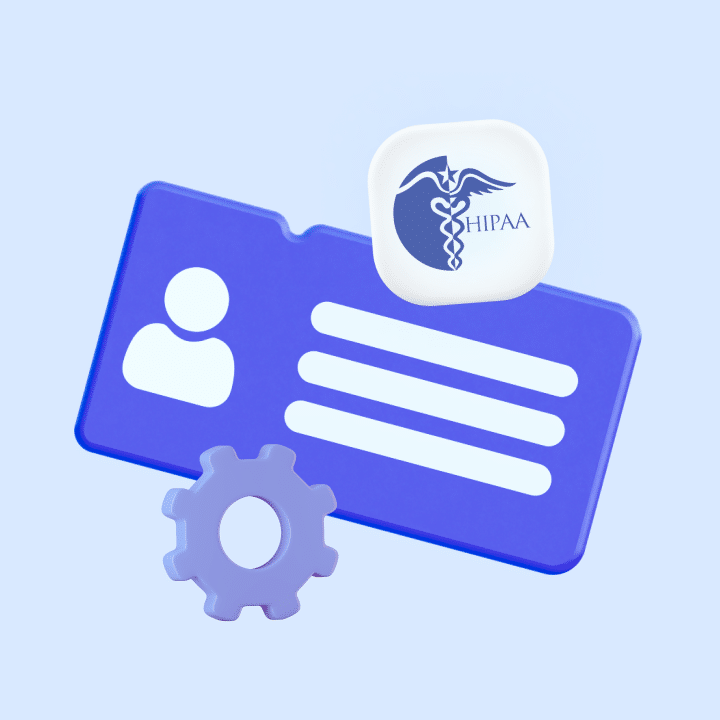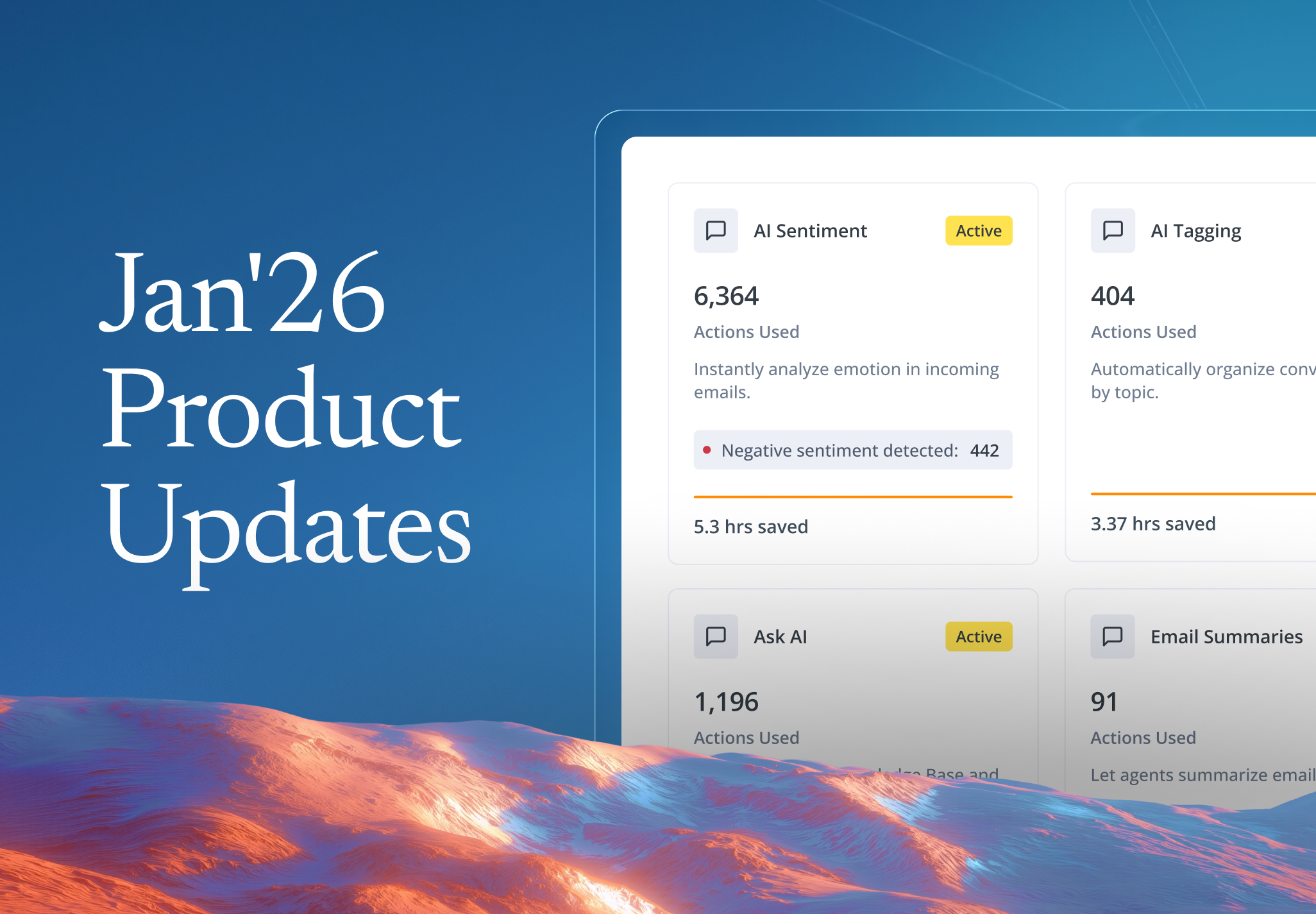If you’re a SaaS business, you would have noticed just how common it is for your users to reach out to you for help with small queries like-
‘How can I access analytics? How do I change user roles and permissions?’
A lot of these queries and questions have to do with basic features and functionalities of your product. They don’t need the intervention of your customer support team.
So, how can you support users with relevant answers and minimize friction whenever they have a question to ask about your product?
That’s where a SaaS knowledge base software comes in.
In this blog we’ll be exploring-
- What is a SaaS Knowledge Base Software?
- The Benefits of Using SaaS Knowledge Base Software
- Top 10 SaaS Knowledge Base Software available in 2025
[cta_block]
Table of Contents
- What is a SaaS Knowledge Base Software?
- What are the Key Benefits of Using SaaS Knowledge Base Software?
- Top 10 SaaS Knowledge Base Software in 2025
- The Bottom Line
What is a SaaS Knowledge Base Software?
A SaaS knowledge base software is a specialized tool designed for software-as-a-service businesses to compile, manage, and share essential information and resources about their products or services.
It acts as a centralized repository where companies can store helpful articles, tutorials, FAQs, and documentation to assist both their customers and support teams. The goal of such software is to improve efficiency by making knowledge readily available and easy to search through. It’s a really effective way for SaaS companies to maintain an accessible, up-to-date, and organized source of information.
Recommended read: What is a Knowledge Base?
What are the Key Benefits of Using SaaS Knowledge Base Software?
Here are some of the major benefits of opting for a good SaaS Knowledge Base Software-
- Improved Customer Support Efficiency: By enabling customers to find answers on their own through a self-service portal, SaaS knowledge base software reduces the number of support tickets and calls. This allows support teams to focus on more complex queries. For example, a company could see a significant reduction in basic troubleshooting inquiries, as users learn to resolve common issues by referring to how-to guides and FAQs.
- 24/7 Accessibility: Customers can access the information they need at any time, regardless of time zones or business hours. Imagine a user encountering a problem outside of support hours; with a knowledge base, they can still find a solution immediately.
- Faster Onboarding for New Customers and Employees: A comprehensive knowledge base can significantly shorten the learning curve for new users and employees by providing all the necessary learning materials in one place. A new employee can familiarize themselves with the company’s services and support protocols quickly by going through curated onboarding material, accelerating their readiness to contribute.
- Cost Reduction: By reducing the demand on customer support through self-service options, companies can lower their operational costs. Consider the cost savings when a significant percentage of customer inquiries are resolved without direct intervention from a support representative.
- Continuous Improvement and Learning: Feedback and analytics from knowledge base usage can help identify common customer issues or gaps in the information provided, guiding content updates and product improvements. Analyzing the most frequently accessed articles might reveal a recurring problem that, once addressed, could lead to a product update reducing the need for related support content.
Top 10 SaaS Knowledge Base Software in 2025
Here are the 10 best SaaS Knowledge Base Softwares to choose from in 2025, if you want to provide your customers with helpful self-service options –
| Software | Starting Price | Free Trial | G2 Rating |
|---|---|---|---|
| Hiver | Free | 7 days | 4.6⭐ |
| Zendesk | $55/agent/month | 14 days | 4.4⭐ |
| Help Scout | $20/user/month | 15 days | 4.4⭐ |
| Helpjuice | $120/month | 14 days | 4.5⭐ |
| KnowledgeOwl | $79/month | 30 days | 4.6⭐ |
| ProProfs | $30/month | 15 days | 4.6⭐ |
| Hubspot | $450/month | 14 days | 4.4⭐ |
| Document360 | $99/month | 14 days | 4.7⭐ |
| Docsie | Free | Available | 4.8⭐ |
| Zoho Desk | Free | 15 days | 4.4⭐ |
1. Hiver
Hiver is one of the most easy-to-use SaaS knowledge base software. With Hiver you can easily build, host, and monitor a centralized library of help articles – answers to frequently asked questions, instructions, and guides – that your customers and support agents can refer to anytime. Apart from setting up a knowledge base, you can use Hiver to manage customer emails and live chat queries. This way, you can bring multiple support channels under one roof.
What many teams like about Hiver is the fact you hardly need any training to get started. The platform is considered to be really intuitive and user-friendly.

Here’s how Hiver stands out as a SaaS knowledge base software:
- User-friendly interface: You can effortlessly draft or modify support articles. Hiver also allows you to categorize articles systematically. You can get started with the platform in just an hour.
- Customizable for your brand: You can take charge of the knowledge base’s look and feel, and also integrate it into your website for a consistent user journey.
- Flexible website configurations: You can set up your personalized knowledge base with a unique domain. You can also integrate a live chat widget into your knowledge base.
- Search functionality: Help your customers easily navigate to a category or article through the search bar, which is, by default, embedded in the knowledge base.
- Scalability: Hiver can keep up with your growing business needs without a hiccup—scaling your knowledge base as your teams scale. The tool is designed for businesses of all sizes.
Pricing
Hiver comes with four types of plans –
- Forever free plan
- Lite plan: $19/per user/per month
- Pro plan: $49/per user/per month
- Elite plan: $79/per user/per month
Free Trial: 7 days
Recommended Reads:
- How to Create Great Knowledge Base Articles: Tips & Templates
- 7 Tips for Making Your Video Knowledge Base User-Friendly
2. Zendesk
Zendesk is a customer service platform that offers a suite of tools designed to improve customer interactions and streamline support operations for businesses of all sizes. It provides a centralized system for tracking, prioritizing, and solving customer support tickets. Zendesk also offers a knowledge base – companies can use it to host articles and provide self-service options for their customers.

Zendesk Guide is a feature within the Zendesk product suite that focuses on creating a self-service knowledge base. Zendesk Guide supports the creation of articles, FAQs, and community forums where users can engage with each other and share solutions. Some of the key highlights of Zendesk Guide are –
- AI-powered article recommendations come up inside support tickets. These can be shared with customers for faster resolution.
- Ai flags older content that could use updation or improvement as well as suggestions to create new help articles.
- Content Cues that tell you which content is most helpful and relevant to customers and which articles can be removed.
Pricing
- Suite Team – $55 per agent/month billed annually (single help center)
- Suite Growth – $89 per agent/month billed annually (multiple help centers)
- Suite Professional – $115 per agent/month billed annually (multiple help centers)
- Suite Enterprise – Custom pricing.
Free trial: 14 days
Top 10 Zendesk Alternatives for 2025
3. Help Scout
Help Scout is a customer support platform that facilitates business-customer interactions and is known for its intuitive interface. It offers a suite of tools including email-based support, live chat, and a customizable knowledge base. The platform is known for its simplicity and ease of use, focusing on helping companies manage customer interactions seamlessly and build better relationships.

Help Scout’s knowledge base product, Docs, uses a WYSIWYG editor, which means you can compose a new article as easily as creating a regular text document. It also lets you upload documents composed in HTML, markdown, or text. Some of its key features include:
- AI-assist helps you refine your content by correcting spelling and grammar mistakes, adjusting copy for length and tone, and translating your content into other languages.
- Help Scout’s messaging widget Beacon recommends content from your knowledge base to customers – based on their queries.
- Detailed reporting helps you learn which articles are getting more views, how people access your documentation, and even how they read it. You can also learn what content is missing from your knowledge base through failed searches, i.e. searches that yielded no results.
Pricing
- Standard: $20 per user/per month
- Plus: $40 per user/per month
- Pro: $65 per user/per month
*Plans are billed annually
Free trial: 15 days
Save 40% cost on this knowledge base software
4. Helpjuice
Helpjuice is a specialized knowledge base software designed to streamline information management for organizations of any size. Known for its ease of use and powerful customization options, Helpjuice enables companies to create, organize, and maintain a comprehensive online knowledge base.

Similar to Help Scout’s WYSIWYG editor, Helpjuice too lets you copy and paste from a Word or Google Doc while retaining the document’s original formatting. It allows multiple agents to simultaneously collaborate and edit a single document remotely.
You can also tag and categorize documents however needed, to allow your customers to easily find the answers they are looking for. Lastly, Helpjuice provides in-depth analytics regarding customers queries so you can use the information to make improvements to your knowledge base content.
Pricing
- Starter – $120 per month, up to 4 users
- Run-up – $200 per month, up to 16 users
- Premium Limited – $289 per month, up to 60 users
- Premium Unlimited – $659 per month, unlimited users
Free trial: 14 days
5. KnowledgeOwl
KnowledgeOwl is a powerful and user-friendly SaaS knowledge base software designed for creating and managing a company’s documentation and customer support content. It offers features to tailor the look and functionality of a knowledge base to match with the company’s brand, and facilitates easy creation of help articles, manuals, and FAQs.

KnowledgeOwl has a WYSIWYG editor along with some pre-made templates. These templates allow you to build and launch a knowledge base quickly, without the need for technical knowledge.
Not only can you tag and categorize articles, KnowledgeOwl also offers features like “search phrases” and a “search synonym library.” This helps ensure that the search results are highly accurate.
Pricing
- Flex Plan- Starts at $79/mo
- Business Plan- Starts at $299/mo
- Enterprise Plan- Starts at $999/mo
*All plans include one author and one knowledge base. You can add more for an additional cost.
Free trial: 30 days
6. ProProfs
ProProfs Knowledge Base is an online documentation software that allows organizations to create, manage, and share knowledge or information within their team or with customers. It is designed to help businesses create FAQs, manuals, help docs, or any form of documentation that aids in knowledge management and customer support.

Here are some of the key features of ProProfs Knowledge Base:
- Easy-to-Use Editor: A user-friendly interface that helps teams easily create and edit articles without needing technical expertise.
- Customizable Templates: Offers a variety of templates that can be customized to match the brand guidelines and needs of the organization.
- Integration Capabilities: Can be integrated with various tools and platforms such as CRM tools, live chat software, and more, to streamline workflows.
- Collaboration Tools: Enables multiple users to work on the same document. Users can track changes, leave feedback, and manage revisions.
Pricing
- Essentials – $30 author/month (billed annually)
- Premium – $40 author/month (billed annually)
- Enterprise – Custom quote
Free trial: 15 days
7. Hubspot
HubSpot’s Service Hub offers a comprehensive suite of tools designed to enhance customer support and service. It allows businesses to effectively engage with customers throughout their journey by offering a centralized platform for managing customer interactions.
One of its key features include a knowledge base for self-service, a ticketing system for help desk operations, live chat capabilities for real-time communication, and additional functionalities aimed at delivering outstanding customer service.

Hubspot offers the ability to customize your knowledge base to be aligned with your brand identity in order to create a consistent customer experience for users. It also syncs well with other tools in the Service Hub suite like their help desk and ticketing system.
With Hubspot, you can create a search-optimized KB of help articles and documents so it’s easier for users to get the answers to their queries. Lastly, it also helps you track the impact and usage of your knowledge base through in-built reporting dashboards. This will give you insights into any areas which need improvement so that you can make your KB more helpful for your customers over time.
Pricing
You can either get their Professional Plan which starts at $450/month for 5 users or their Enterprise Plan which starts at $1200/month. You can pay extra if you want to add more users.
Free trial: 14 days
8. Document360
Document360 is a cloud-based knowledge management platform designed to streamline the process of creating, managing, and delivering a self-service knowledge base for customers and internal users. It offers a user-friendly interface for creating documentation, including articles, FAQs, and guides.

It’s key features include:
- Version Control: Manages updates and revisions to documents, allowing for easy tracking of changes.
- Customization Options: Allows for the knowledge base to be branded and designed to match the company’s aesthetics.
- Collaboration Tools: Facilitates teamwork by allowing multiple contributors to work on the documentation simultaneously.
- Security Features: Ensures sensitive information is protected with robust security measures.
- Multi-Language Support: Enables the creation of documentation in various languages to cater to a global audience.
- Category Management: Organizes content into categories and subcategories for easier navigation.
Pricing
- Startup – $99 per project, per month (2 team accounts)
- Business – $ 299 per project, per month (10 team accounts)
- Enterprise – $ 499 per project, per month (15 team accounts)
- Enterprise Plus – custom quote
Free trial: 14 days
9. Docsie
Docsie is another cloud-based documentation platform tailored for businesses looking to create, manage, and publish online manuals, guides, and help documents. Distinctive for its simplicity and ease of use, Docsie allows users to write and organize their documentation directly in their web browser.

It’s main features include –
- Dynamic Content Management: Users can dynamically update content without republishing the entire documentation, making it easy to keep information current.
- Multi-Language Support: Docsie facilitates the translation and management of documents in multiple languages, helping businesses serve a global audience.
- Embeddable Widgets: Offers widgets that can be embedded into apps or websites, allowing users to access documentation without leaving the product interface.
- Version Control: Keeps track of different versions of documentation, enabling users to revert changes or compare versions.
Pricing
- Startup – Free, up to three members
- Startup Plus – $39/month, up to five members (when billed annually)
- Small Team – $79/month, up to fifteen members (when billed annually)
- Business – $249/month, up to twenty-five members (when billed annually)
- Organization – For this plan, please contact sales.
Free trial: Available
Recommended read: 7 Best Free Knowledge Base Software in 2025
10. Zoho Desk
Zoho Desk is a cloud-based customer service software that helps businesses deliver superior support to their customers. It centralizes and automates support tickets from various channels, including email, social media, and web forms, into a single interface, making it easier for support teams to manage and resolve issues. Zoho Desk also enables businesses to create a knowledge base for common customer queries.

Zoho Desk’s knowledge base offers the following features:
- Feedback Collection: Enables customers to rate and provide feedback on articles, helping businesses understand and improve content effectiveness.
- Content Management Tools: Facilitate easy creation, editing, and organization of articles, FAQs, and guides.
- Analytics and Reports: Provides insights into article performance, customer engagement, and search trends within the knowledge base.
- Community Forums: Allows businesses to engage with their customer community, enabling users to ask questions and share solutions.
Pricing
- Free: Up to 3 agents
- Express: $7/agent/month up to 5 agents
- Standard: $14/agent/month
- Professional: $23/agent/month
- Enterprise: $40/agent/month
Free trial: 15 days
The Bottom Line
Opting for the right SaaS knowledge base software can be the difference between your customers being able to find what they’re looking for or leaving after being frustrated. If you want to make sure your customers have a smooth time resolving their queries on their own, make sure you buy a software that fits the bill well. If you’d like to learn more about how Hiver works, here’s a quick run-through of the platform.
 Skip to content
Skip to content











